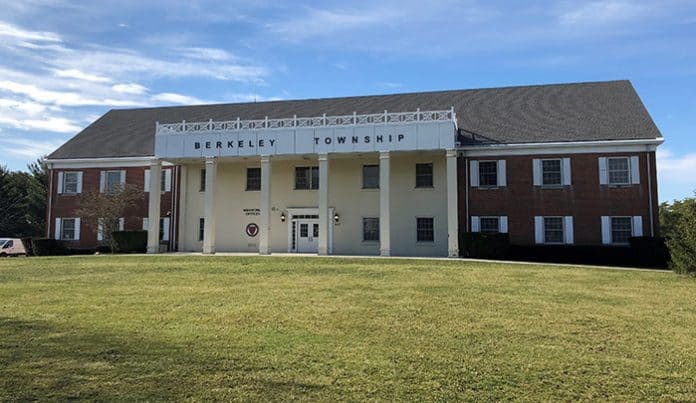
BERKELEY – The township was ordered to pay an employee $1.6 million as the result of a discrimination case, but local officials have said they will appeal this decision.
The jury’s May 25, 2023 verdict found that the plaintiff, Debra Reuter, proved she was discriminated against by the township for having a “mental disability” and that the conduct by defendants was “severe or pervasive enough to make a reasonable person who has a mental disability believe the working environment was intimidating, hostile, or abusive.” They also believed that “adverse employment actions” were taken against her as retaliation for making a complaint about the discrimination.
The defendant is Berkeley Township, Mayor Carmen Amato, Business Administrator John Camera, building and grounds supervisor Ted McFadden, and recreation director Debbi Winogracki are named in the suit.
In the years since the suit was filed, several changes have taken place. For example, Winogracki has since left Berkeley and the new recreation director is Lacey Councilman Mark Dykoff. Amato has announced that he is leaving the mayoral seat to run for state senate.
The jury awarded Reuter $500,001 for emotional distress and $110,000 for economic loss. She was also awarded $1,000,002 in punitive damages against the town. Furthermore, Reuter can make an application to charge the town for her legal fees.
The lawsuit, filed in 2018, lists ways Reuter said she was discriminated against due to her Jewish faith. She said that this created an anxiety condition. Furthermore, she felt retaliated against because she filed a complaint. Other employees learned of her anxiety and it compounded issues.
Attorney Christopher Dasti, who is representing the town, said that they will be appealing the decision in post-trial motions. The jury’s verdict was inconsistent and he feels that the town won’t have to pay anything if the appeal goes through.
“It was a very hard-fought trial,” he said. “The town didn’t do anything wrong and we’re confident we’ll be successful.”
Attorney Crystal Dozier, who is representing Reuter, said that her client is still technically an employee of the town. A few months ago, there was a settlement conference where the town would have paid $400,000 but the Township Council rejected that and it went to trial. The outcome of the trial was the $1.6 million award, four times as much.
It’s important to note that the reason for the anxiety was anti-Semitic harassment, according to Reuter. However, the jury didn’t agree that the charge of religious discrimination had any merit.
The jury found that the discrimination for the anxiety was “severe or pervasive,” Dozier said. That is one thing the case was trying to prove.
The jury doesn’t disagree that the anti-Semitic comments happened, but disagrees that they were severe or pervasive, she said. The jury didn’t believe that the alleged anti-Semitism was one of the factors.
Berkeley Township is the main defendant in the case, and the people named were superiors who allegedly discriminated against her or allowed it to happen. While Amato, as mayor, has a full time job outside town and is not overseeing every aspect of daily operations, Dozier took issue with that.
“If he can’t keep control of his town, I don’t see how he’s fit for a higher position,” she said.







